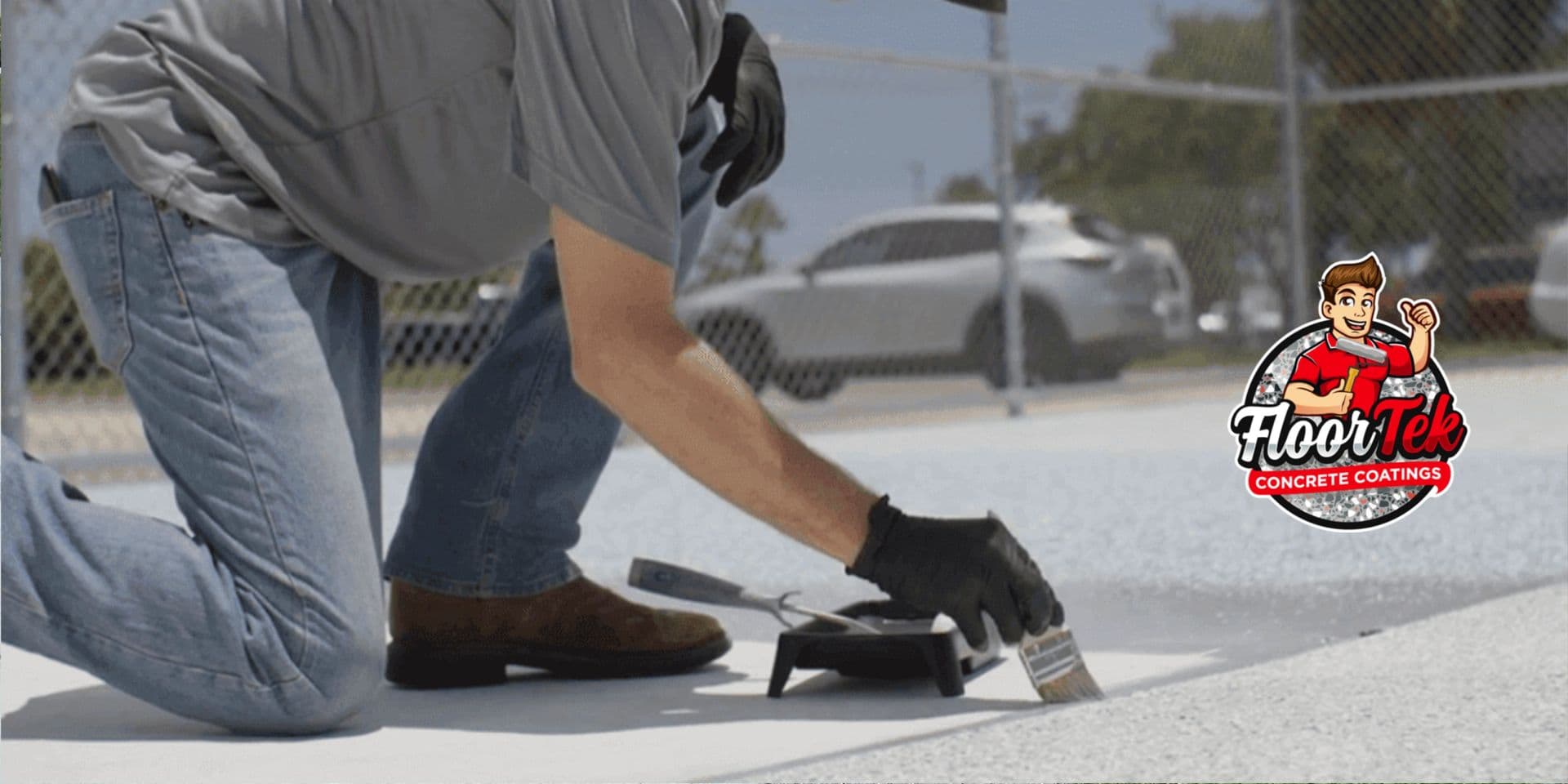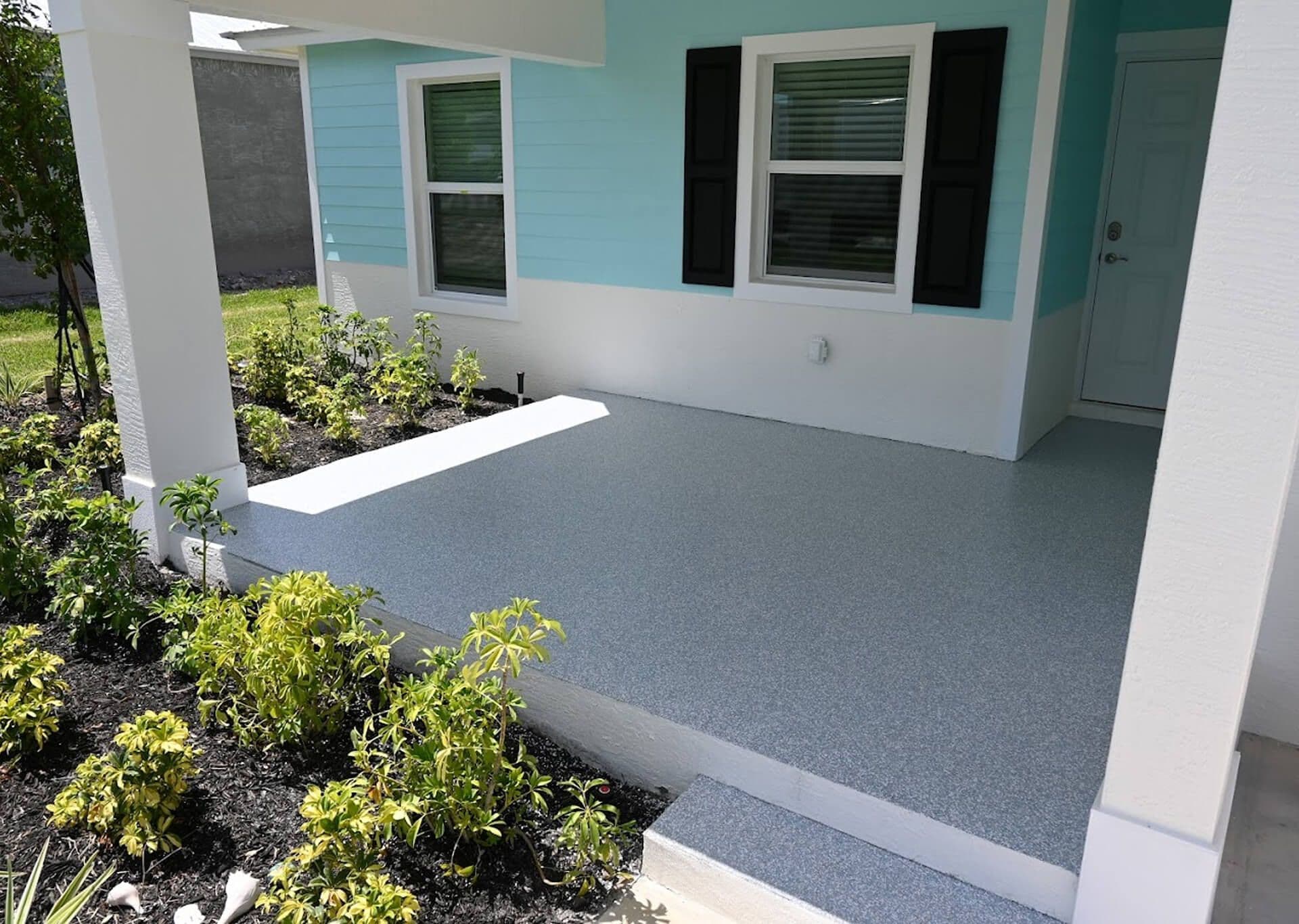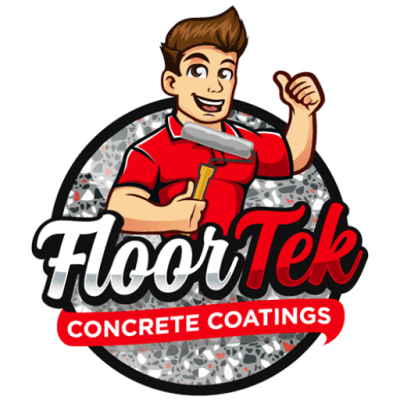What Drives the Price of a Garage Floor Coating Up or Down?

As you embark on the journey of upgrading your garage floor, you're likely encountering a wide range of quotes. Some may seem too good to be true, while others may appear surprisingly high. This disparity can be perplexing. At Floortek, we believe in transparency. We want to equip you with the knowledge to understand what drives the price of a garage floor coating up or down. It’s not just about the size of your garage; it’s about the long-term value and durability you receive. The factors that influence the final cost are the very same factors that determine whether your floor will peel and fail in a year or look beautiful for decades. This understanding is key to making an informed decision about your garage floor upgrade.
You deserve to understand where your money is going. This guide will walk you through the seven key elements that affect the investment in a new floor. We’ll break down why a slightly higher initial cost for a superior system isn't just a purchase but a permanent upgrade for your home, adding value and durability for years to come.
The Core Factors That Determine Your Garage Floor Coating Price
Understanding what drives the price of a garage floor coating up or down begins with looking beyond the surface. A professional coating is a multi-step system, and each step has a direct impact on the final quality and cost. Let’s explore the factors that matter most, empowering you to make informed decisions about your home improvement project.
Factor 1: The Coating Material Itself (The Biggest Differentiator)
The single most significant factor in your quote is the type of material being installed. This is where you’ll see the most significant difference between a budget-friendly job and a premium, long-lasting one. Many homeowners are familiar with epoxy, but modern chemistry has produced far superior options.
The Old Technology: Epoxy Coatings Epoxy is a well-known name, and it’s often the go-to for contractors offering a low-cost solution. However, that lower initial price comes with significant trade-offs. Epoxy is essentially a rigid, plastic-like resin that is prone to several issues, especially in climates with high humidity and intense sunlight, such as those found in Stuart, Florida, and Birmingham, Alabama.
One of the most common complaints is that epoxy yellows over time when exposed to sunlight. If your garage door is often open, the portion of the floor hit by sunlight will discolor, creating an uneven, aged look. Furthermore, epoxy is brittle. It doesn't expand and contract well with the concrete during temperature swings, which leads to cracking and peeling. This is the root cause of "hot-tire pickup," where hot tires from your car can soften the epoxy, causing it to lift right off the floor. We often see this when we're called to repair a failing floor. You can read more about the 5 Common Problems with Epoxy Floors that we are usually hired to fix.
The Modern Solution: Polyurea & Polyaspartic Systems. At Floortek, we specialize in a far more advanced system using a polyurea base coat and a polyaspartic top coat. This is the new industry standard for professional installers who prioritize quality and excellence. Polyaspartic coatings are chemically engineered to be flexible, meaning they move with your concrete instead of fighting against it. This flexibility virtually eliminates the risk of peeling or cracking from temperature changes.
Our polyaspartic systems are also 100% UV stable, ensuring they will never yellow or fade from sun exposure, and will keep your floor looking new for years. They are significantly more durable and abrasion-resistant—in fact, our system is 10X better than epoxy. It’s also chemically resistant to oil, gas, and other everyday spills. This difference in material technology is a key part of the Epoxy vs Polyaspartic Costs conversation. While the material itself is more advanced and comes at a higher price point, its longevity provides far greater value. You can see the incredible results for yourself in our Gallery.
Another significant benefit is the installation time. Epoxy floors can take three to five days to cure, leaving your garage completely unusable. Our polyaspartic systems are designed for a streamlined process, allowing us to deliver beautiful 1-day garage floor coatings. You can be walking on your new floor the next day and parking your car on it shortly after.
Factor 2: The Condition of Your Concrete
No concrete slab is perfect. Over time, concrete develops cracks, pits, and stains. Before any coating can be applied, this damage must be properly repaired. The extent of this repair work is a significant variable in your final quote.
Cracks: We don’t just pour filler over cracks. We use a diamond grinder to "chase" the crack, opening it up to create a clean, solid channel. We then fill it with a specialized mender that becomes a permanent part of the concrete. This ensures the crack never returns.
Pitting or Spalling: This happens when the top surface of the concrete flakes away, often due to moisture or road salts. Repairing this requires grinding down the damaged areas and applying a high-strength patching material to restore a smooth, solid surface.
Moisture: Concrete is porous and can wick moisture from the ground below. This is a common issue in humid areas. If a moisture test reveals high vapor transmission, applying a standard coating will fail as the trapped moisture pushes it off. In these cases, a moisture-mitigating primer is necessary, which adds a step to the process. Addressing this is crucial for achieving the best basement floor finishes with optimal moisture resistance.
Previous Failed Coatings: If you have an old, peeling DIY epoxy kit or a failed coating from another company, it must be removed entirely. This is a labor-intensive process that involves grinding the old coating off the floor, which will factor into the overall project time and cost.
Ignoring these issues is how low-bid contractors cut corners. They will paint over cracks and imperfections, trapping the problem underneath. Within months, those same issues will telegraph through the new coating, causing it to fail. A quality installation from Floortek of Alabama or our Florida Location always starts with a perfectly prepared foundation.
Factor 3: The Quality of Surface Preparation
Understanding the importance of surface preparation quality is crucial. It's the most critical and non-negotiable step in the entire process. The single biggest reason floor coatings fail is improper surface preparation. The coating needs to soak into the concrete to form a permanent bond, not just sit on top like a layer of paint. This step is where the quality of the installation is truly determined, and it's not an area where you want to cut corners.
To achieve this, we use a process called mechanical diamond grinding. Our crews use large, industrial grinders with diamond-embedded discs to remove the top layer of concrete. This process is similar to sanding wood before staining it. It removes any old sealers, oils, or contaminants and, most importantly, opens up the pores of the concrete. This creates a rough "profile" that allows our polyurea base coat to penetrate deep into the slab and grab on permanently. You can learn more about why this matters in our guide to DIY Garage Floor Kits vs Professional Installation.
The alternative, used by amateurs and in DIY kits, is acid etching. This involves pouring a mixture of acid and water on the floor to roughen it up. Acid etching is notoriously unreliable. It can create an uneven profile, leave behind neutralizing residue, and doesn't effectively remove many common contaminants. It’s a shortcut that almost always leads to peeling and failure down the road. Any quote that doesn't include mechanical diamond grinding is a quote for a temporary floor.
Factor 4: Job Complexity and Layout
While square footage is the baseline, it isn't the only factor related to the size of the job.
Vertical Surfaces: Many garages have concrete stem walls, steps, or curbs. Coating these vertical surfaces requires detailed handwork with specialized tools. This additional labor and material will influence the final cost.
Layout: A simple, rectangular two-car garage is more straightforward to work on than a three-car garage with support columns, tight corners, or built-in storage. The more complex the layout, the more time and precision are required from our installation team.
These details are why an on-site consultation is so important. We can assess the unique aspects of your space—whether it’s a garage, a patio coating service, or a pool deck coating service—to give you an accurate and fair quote.
Factor 5: The Coating System and Your Chosen Finish
A professional floor coating is not a single layer of material. It's a multi-layer system designed for maximum performance. Our standard system, which offers the best value and durability, includes:
A Polyurea Base Coat: This is the foundational layer that bonds deeply with the prepared concrete.
A Full Broadcast of Flakes: We cast a thick layer of decorative vinyl flakes across the entire wet surface. This isn't just for aesthetic purposes; the flakes add texture and thickness, enhancing the floor's overall strength and durability.
A Polyaspartic Clear Top Coat: This final layer seals the system, providing a glossy, easy-to-clean surface that resists chemicals, abrasions, and UV damage.
Some companies may try to lower their price by offering a "partial flake" broadcast, where flakes are lightly sprinkled over the base coat. This uses fewer materials but results in a weaker, less visually appealing floor. We believe in doing it right, which is why we only offer a full broadcast. You can explore our many Colors and Flake Options to find the perfect look for your space.
Factor 6: Installer Experience and Company Reputation
When you invest in a floor coating, you're not just buying materials; you're investing in the skill and reliability of the company installing it. An experienced team that has coated thousands of floors, from a basement coating service to an expansive driveway coating service, knows how to handle the unexpected. They know how to properly repair damaged concrete and adjust their process for changing weather conditions, which is crucial in places like Huntsville, Alabama.
A reputable company like Floortek invests heavily in:
Top-of-the-Line Equipment: Our industrial grinders and dust collection systems are expensive but necessary for a professional result.
Proper Insurance: We carry full liability and workers' compensation insurance to protect you and your home. Low-bid contractors often skip this to save money, putting you at risk.
Skilled Employees: We don’t use untrained subcontractors. Our technicians are full-time employees who are experts in their craft.
A Real Warranty: A promise is only as good as the company behind it. We back our work with a solid Life-of-home warranty. Unlike vague "lifetime" promises, our warranty is straightforward and protects your investment. Knowing why ‘Life of the Home’ Warranties Are Stronger is key to making an informed decision.
These operational costs are factored into the price of a professional installation and are what ensure a successful, long-lasting outcome.
Factor 7: Your Geographic Location and Local Climate
Finally, where you live plays a role. The cost of labor, materials, and fuel can vary from one region to another. Furthermore, the local climate affects the installation process. The persistent humidity in the Southeast requires installers who understand how to test for moisture and use the right materials to prevent failures. This is a topic we've covered in our post on Why Garage Floor Coatings Fail in Humid Climates. Choosing a local expert who understands these regional challenges is critical.
The Hidden Costs of a "Cheap" Floor Coating
Now that you know what drives the price of a garage floor coating up or down, you can see why an unusually low quote is a major red flag. That "deal" is almost always achieved by cutting corners on one of the critical factors listed above.
A contractor using cheap epoxy, skipping proper diamond grinding, and painting over cracks can offer a very low price. But within a year or two, that floor will inevitably begin to peel, chip, and yellow. Now you have a bigger problem. Not only do you have to pay to have the failed coating painstakingly ground off, but you also have to pay for a new, quality system to be installed correctly. The total cost of this mistake is almost always far more than the initial cost of doing it right the first time. It's one of the Top Mistakes Homeowners Make When Choosing a Garage Floor Coating.
Frequently Asked Questions About Garage Floor Coating Costs
1. What is the most significant factor that drives the price of a garage floor coating up or down?
The most critical factor is the type of material used. Advanced polyurea and polyaspartic systems may cost more upfront than traditional epoxies, but they offer superior durability, UV stability, and longevity, providing significantly better long-term value.
2. Does the condition of my concrete really change the price that much? Yes, significantly.
A floor with extensive cracks, pitting, or a failing previous coating requires many more hours of labor and specialized materials for repair, which will be reflected in the final quote.
3. Why do some companies offer much lower prices for the same size garage?
Lower prices are almost always a result of cutting corners. This usually means using cheaper, inferior materials, such as epoxy, skipping the essential step of mechanical diamond grinding, or being underinsured.
4. Is a full-flake broadcast floor more expensive?
Yes, a full broadcast of decorative flakes uses significantly more material than a light sprinkle and adds an extra step to the installation process. However, it also creates a much stronger, thicker, and more aesthetically pleasing floor.
5. How does my location in a humid state like Florida or Alabama affect the price?
The high humidity in these states means there's a greater risk of moisture issues in the concrete. A professional installer may need to include a moisture-mitigating primer in the system to guarantee the coating won't fail, which can add to the cost.
6. Will coating my garage steps or stem walls add to the cost?
Yes. Coating vertical surfaces is detailed handwork that requires more time and labor than coating the flat floor, so it is priced as an additional component of the project.
7. Is a more expensive polyaspartic floor worth it?
Absolutely. While the initial investment is higher than epoxy, a polyaspartic system will not yellow, peel, or chip. Its durability means you won't have to pay to repair or replace it in a few years, saving you money and hassle in the long run.
8. Can I get a cheaper price by preparing the concrete myself?
We strongly advise against this. Surface preparation is the most critical step for achieving a lasting bond. Our industrial diamond grinders and dust collection systems are specialized equipment that ensures a perfect profile, which cannot be replicated with rental equipment or DIY methods.
9. How do different warranties affect what drives the price of a garage floor coating up or down?
A strong, explicit warranty from an established company reflects confidence in the materials and installation process. Companies offering vague or limited warranties may be using cheaper products that they don't expect to last, allowing them to provide a lower initial price.
10. Does Floortek offer any discounts? Yes!
We want to make this valuable home upgrade as accessible as possible. For first-time customers, we are currently offering a special 30% off on the first installation.
Your Next Step to a Perfect Floor
Understanding what drives the price of a garage floor coating up or down is the first step toward making a confident investment in your home. It’s about choosing a permanent solution over a temporary fix. It’s about valuing quality preparation, superior materials, and expert installation.
If you’re ready to transform your concrete with a floor that is durable, beautiful, and built to last a lifetime, we invite you to learn more. Contact us to schedule your Free Quote. A member of our team will visit your home, measure your space, assess your concrete, and provide you with an exact price for your project with no hidden fees.
For service in Alabama, call us at (205) 476-3232. For service in Florida, call us at (772) 758-7215.
FREE In-Home Estimate
Plus 30% Off

